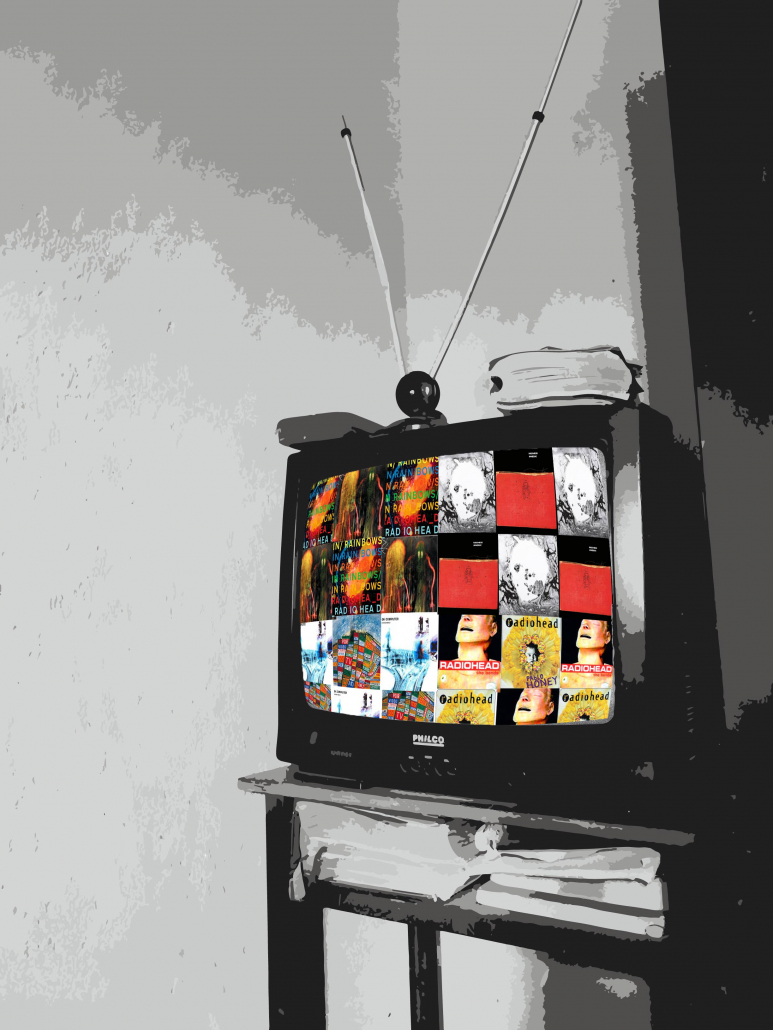Film Schooled: We need to talk about Radiohead

One of the best artistic decisions director Catherine Hardwicke made for “Twilight,” and yes, it’s hard to narrow it down to just one, was using Radiohead’s “15 Step” to score part of the ending credits.
The five-time Mercury Prize-nominated, 2019 Rock and Roll Hall of Fame-inducted, six-time Grammy Award-winning English experimental rock band needs no introduction. Their musical influence has pushed the industry into the computer age, revived art-pop and has even inspired an emotion — the “Radiohead effect” was coined to describe the exact moment when one of the band’s songs captures your attention and leaves you at the mercy of its lyricism and sonic fantasies.
I experienced the Radiohead effect recently. I watched Paul Thomas Anderson’s “Phantom Thread” with my Daily Trojan boss and, long after the credits had rolled and we said our goodnights, I laid on my back and stared at the ceiling while listening to “House of Woodcock,” the main jazz-improvisational/British posh theme of the movie. I felt like Beth Harmon as I almost could see and touch the kaleidoscope of note colors and textures that fills your ears and heart with every new crescendo and whine of the violin.
And who is responsible for this? Jonny Greenwood, lead guitarist and keyboardist of Radiohead. The project, earning an Oscar nomination for Best Original Score in 2018, can truly be described as an arrangement, where Greenwood melded harmonies to its narrative and character compatriots and Anderson saw fit to edit as the music dictated.
Beyond what the music may symbolize to each viewer, Greenwood’s inclusion in the film conjures both the idyllic and the bittersweet. In what would be Daniel Day-Lewis’ final acting role, Greenwood said to the New York Times that the two collaborated to find a score that answers the following: “How can music sound English and still be Romantic?”
Although not known for its overt romance, Radiohead’s heart and love are held by the musicians. The group has not released anything since 2016’s “A Moon Shaped Pool,” and while the fixtures of the band go their separate ways, the movement can’t be described as a puzzle losing its pieces when each individual production is so impressive.
Greenwood’s particular talent within the music scoring field has garnered the attention of audiences, filmmakers and composers around the globe for his other contributions. He scored the late Lynne Ramsay’s psychological terror “We Need to Talk About Kevin,” incorporating sounds such as a harp with metal screens to fill the screen with the echo of tension that permeates throughout the film.
I have to admit that I’m jealous of Paul Thomas Anderson. As a fan of Greenwood’s, Anderson has incorporated his scores into several of his movies, including maybe one of the most significant departures from Radiohead-esque sound in “There Will Be Blood.”
We actually reviewed the film last week in my “American Film” class, and though everyone wanted to talk about the score, I find it interesting that the same pattern emerges in that no one talks about its composer (unless it is John Williams). When you listen to a score by Greenwood, especially in “There Will Be Blood,” you can’t help but make connections between the soft, patterning piano arrangements that remind of his home band, along with the influence of jazz and classical composers in Charles Mingus and Krzysztof Penderecki.
I’m not very keen at describing my relationship with music in film due to hearing impairment and other losses for words, but it is a disservice to our arts education if we don’t yield to the natural interdisciplinary aspects of film media and the influence of its individual visionaries. Whether you think Radiohead is washed, a meme or your favorite band of all time, there needs to be a rejoice of this sort of engagement of music influence — a project that can open the field from its elitist and predominantly white boundaries.
Lauren Mattice is a senior writing about film culture. She is also the digital managing editor of the Daily Trojan. Her column, “Film Schooled,” runs every other Wednesday.

